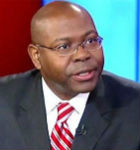Education scholars Jay Greene and Frederick Hess wrote in these pages recently that the school-reform movement is losing its mojo, not because it has run out of useful ideas but because it has become populated by progressives who prefer to prioritize anti-Trump “resistance.”
That’s bad news for millions of inner-city minorities who lack the resources to opt out of violent, chronically failing schools. The irony is that the same progressives who obsess over inequality and statistical disparities also fume at education reforms that have helped narrow learning gaps and thus led to better life outcomes for underprivileged groups in general.
After New York City released admissions data last month for the city’s most selective public high schools, where students are chosen based on a single, race-blind test, I reached out to the Success Academy Charter Schools network to find out how their middle-schoolers fared. It turns out that black and Hispanic students at Success Academy, which chooses students by lottery rather than academic ability, were admitted to the elite high schools at double the rate of their black and Hispanic peers citywide. I wasn’t surprised. The same thing happened last year.
Bill de Blasio, New York’s progressive mayor, wants the elite schools to be more racially balanced and has called for replacing the entrance exam with what amounts to a racial quota system. This year, as usual, Asian-Americans were awarded more than half of all slots, even though they comprise only about 16% of the city’s public-school students. Understandably, Asian parents oppose the mayor’s proposal. A study released by the city’s Independent Budget Office surmised that the de Blasio plan would cut Asian admissions in half. But even some black parents have expressed concern that admitting underprepared kids to these schools for aesthetic reasons could turn them into academic failures and targets of abuse.
The obvious way for Mr. de Blasio to advance his diversity goals without watering down admissions standards or exacerbating racial and ethnic tensions would be to give lagging groups more access to schools like Success Academy. “If the city had more high-performing charter schools, the specialized schools would be dramatically more diverse,” said Seth Andrew, founder of another high-performing public charter-school network in New York, Democracy Prep. But teachers unions oppose charter schools because they don’t control them, and the mayor has chosen his union allies over parents who want more school choice. The upshot is that the city’s charter-school wait list now exceeds 50,000 children.
If anything, Democratic opposition to meaningful education reform is intensifying. In the past year, teacher walkouts have occurred in major cities like Los Angeles and Denver, as well as states including West Virginia, Kentucky, Arizona and Oklahoma. Union demands have included higher pay, less accountability and reductions in school choice. Wisconsin was a school-choice pioneer in the 1990s, but the new governor, Tony Evers, wants to “phase out vouchers” and cap the number of charter schools.
Mr. Evers says the issue is costs, but voucher recipients and public charter schools in Wisconsin and elsewhere typically are funded at lower levels than traditional public schools. A new study of eight major cities—Atlanta, Boston, Denver, Houston, Indianapolis, New York, San Antonio and Washington—by researchers at the University of Arkansas has concluded that charter schools are not only producing superior academic results but doing so far more efficiently than the traditional school system.
“The public charter school sectors in all eight of these U.S. cities are more cost-effective and deliver a higher return-on-investment than their respective traditional public school sectors,” wrote the authors. “In these important urban environments, there is a clear productivity advantage for public charter schools.”
That’s something cities and states with debilitating pension obligations might want to consider, but don’t hold your breath. Tuesday’s runoff mayoral election in Chicago featured two black progressives, both of whom have called for a moratorium on charter schools even though blacks and Hispanics have consistently supported school choice at higher rates than whites. Chicago’s Noble Network of Charter Schools is 98% black and Hispanic, and 80% of graduates head off to four-year colleges, compared with 42% of students who graduate from the city’s traditional public schools. Chicago doesn’t need a moratorium on Noble Network schools. It needs more of them.
Like New York, Chicago has alternatives to failing schools. And like New York, the political progressives in charge have little interest in using those alternatives, let alone scaling them up to meet demand. There’s nothing wrong with good-faith disagreements about school reform. No political party or movement has a monopoly on good ideas. But if Democrats aren’t careful, progressives will turn the school-reform movement into something no longer worthy of being called reform.
 Jason Riley is a member of The Wall Street Journal Editorial Board.
Jason Riley is a member of The Wall Street Journal Editorial Board.
The views expressed in opinion articles are solely those of the author and are not necessarily shared or endorsed by Black Community News.
 Black Community News News and Commentary for Christians
Black Community News News and Commentary for Christians



